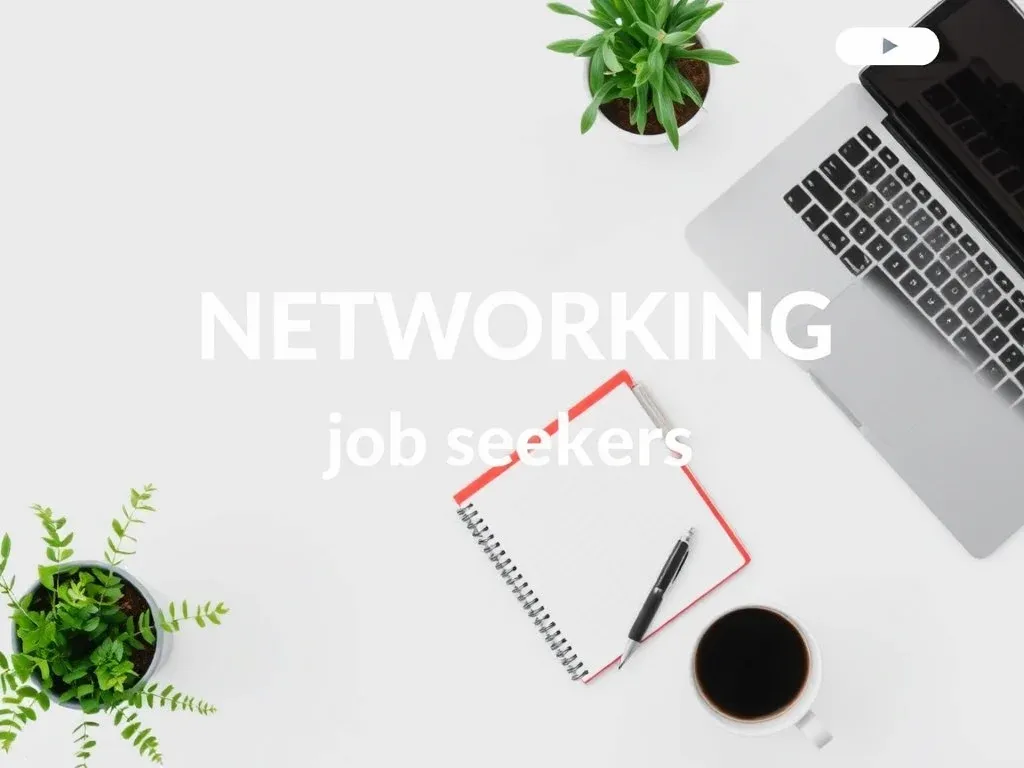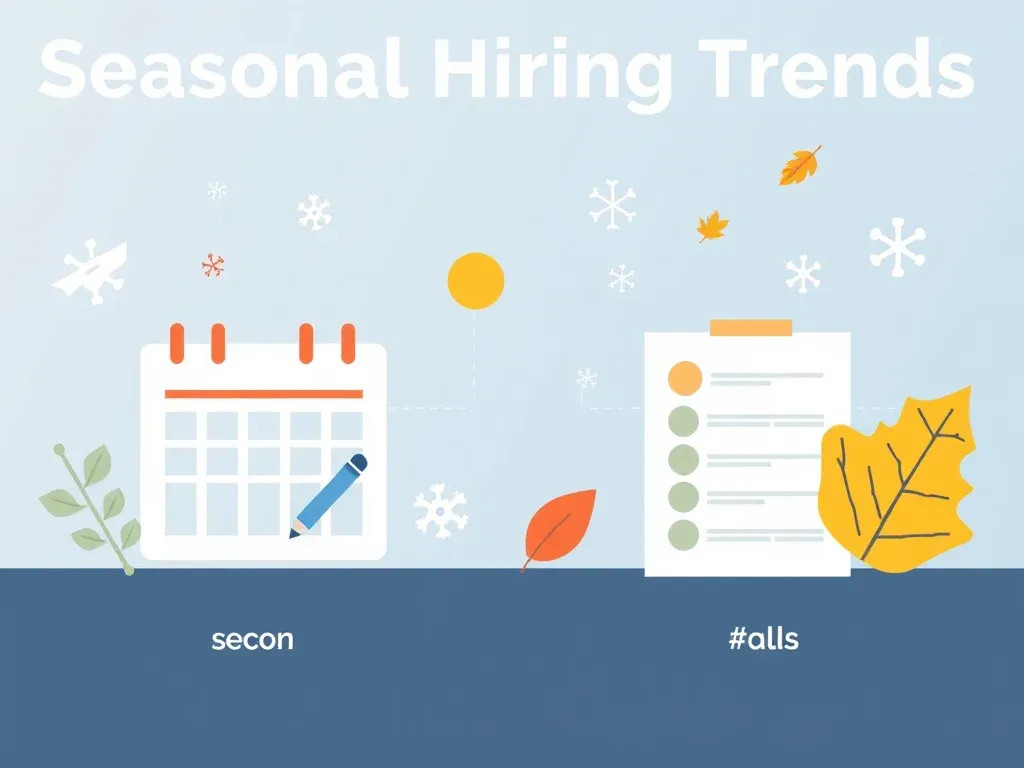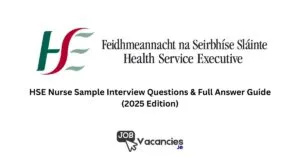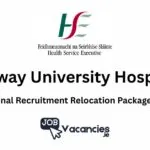Table of Contents
- Table of Contents
- Introduction
- The Importance of Networking in Ireland
- Key Benefits of Networking in Ireland:
- Online Networking Strategies
- LinkedIn Optimization for the Irish Market
- Twitter/X for Professional Networking
- Irish-Specific Online Communities
- In-Person Networking Opportunities
- Industry Events and Conferences
- Networking Meetups and Groups
- Volunteering and Community Involvement
- Understanding Irish Business Culture
- Relationship-Focused Approach
- Communication Style
- Networking Etiquette
- Crafting Your Elevator Pitch
- Components of an Effective Elevator Pitch
- Tailoring Your Pitch for the Irish Market
- Conducting Informational Interviews
- Finding Interview Subjects
- Making the Request
- Preparing for the Interview
- Leveraging Alumni Networks
- Irish University Alumni Networks
- Making the Most of Alumni Connections
- Industry Associations and Professional Bodies
- Key Irish Professional Associations
- Benefits of Association Membership
- Common Networking Mistakes to Avoid
- Relationship-Building Errors
- Communication Missteps
- Strategic Errors
- Maintaining and Nurturing Professional Connections
- Regular, Meaningful Communication
- Providing Value
- In-Person Reconnection
- Networking Success Stories
- Conclusion
- Your Networking Action Plan
- About the Author
- Need More Job Search Help?
- Related Posts
Networking Strategies for Job Seekers in Ireland: Building Professional Connections
Reading time: 10 minutes
In today’s competitive Irish job market, who you know can be just as important as what you know. Effective networking is a powerful tool that can uncover hidden job opportunities, provide valuable industry insights, and help you build relationships that advance your career. This comprehensive guide explores proven networking strategies specifically tailored for job seekers in Ireland.
Introduction
Networking is often described as the hidden job market, and for good reason. According to recent research, up to 70% of jobs in Ireland are never publicly advertised, with positions instead being filled through referrals, recommendations, and internal networks. This statistic alone highlights why networking should be a crucial component of any job search strategy in Ireland.
Whether you’re a recent graduate, a professional looking to change careers, or someone new to the Irish job market, building a strong professional network can significantly increase your chances of finding meaningful employment. Networking isn’t just about collecting business cards or adding connections on LinkedIn—it’s about building genuine relationships that provide mutual value.
In this guide, we’ll explore both traditional and innovative networking approaches that are particularly effective in the Irish context, helping you to expand your professional circle and uncover new career opportunities.
Pro Tip:
Approach networking with a giving mindset rather than just taking. Consider how you can provide value to others, whether through sharing relevant articles, making introductions, or offering your expertise. This approach builds stronger, more meaningful connections that are more likely to yield results in your job search.
The Importance of Networking in Ireland
Ireland’s business landscape has some unique characteristics that make networking particularly valuable:
- Close-knit business community: Despite being home to many multinational corporations, Ireland maintains a relatively small and interconnected business community, especially within specific industries. This means that word-of-mouth and personal recommendations carry significant weight.
- Strong emphasis on relationships: Irish business culture places high value on personal connections and trust. Many business decisions are made based not just on qualifications, but on personal rapport and trusted recommendations.
- Regional opportunities: While Dublin remains the primary business hub, cities like Cork, Galway, and Limerick have thriving industry clusters with their own networking ecosystems that can be valuable to tap into.
- Multinational presence: Ireland’s status as a European headquarters for many global companies means that local networking can potentially open doors to international opportunities.
Recent data from the Economic and Social Research Institute (ESRI) indicates that job seekers who actively network are 40% more likely to find employment within six months compared to those who rely solely on job boards and advertisements. Furthermore, positions obtained through networking often come with higher starting salaries and better alignment with career goals.
Key Benefits of Networking in Ireland:
- Access to the hidden job market: Learn about opportunities before they’re publicly advertised
- Industry insights: Gain valuable information about trends, challenges, and opportunities in your field
- Skill development: Improve your communication and interpersonal skills
- Increased visibility: Get on the radar of hiring managers and decision-makers
- Career advice: Receive guidance from experienced professionals in your industry
- Confidence building: Develop greater self-assurance in professional settings
Online Networking Strategies
In today’s digital world, online networking has become an essential component of any job search strategy. Here are some effective online networking approaches specifically relevant to the Irish job market:
LinkedIn Optimization for the Irish Market
With over 2 million Irish users, LinkedIn is the premier professional networking platform in Ireland. To maximize its potential:
- Complete your profile: Include a professional photo, compelling headline, and comprehensive work history. Use keywords relevant to your industry to improve searchability.
- Join Irish industry groups: Participate in discussions in groups like “Irish Tech Jobs,” “Business Network Ireland,” or industry-specific groups relevant to your field.
- Follow key Irish companies: Follow organizations you’re interested in working for to stay updated on their news and job openings.
- Engage with content: Comment thoughtfully on posts from Irish industry leaders and companies to increase your visibility.
- Share relevant content: Post articles, insights, or updates related to your industry in Ireland to establish yourself as knowledgeable and engaged.
Pro Tip:
When sending connection requests to Irish professionals, always include a personalized message referencing a shared interest, group, or how you discovered their profile. Generic connection requests are often ignored.
Twitter/X for Professional Networking
Twitter can be a surprisingly effective networking tool in Ireland, particularly in sectors like technology, media, marketing, and politics:
- Follow industry hashtags like #IrishJobs, #JobFairy, #IrishTech, or industry-specific tags
- Engage with Irish thought leaders and companies in your field
- Join Twitter chats relevant to your industry
- Share valuable content and insights to build your professional brand
Irish-Specific Online Communities
Beyond the major social platforms, consider these Ireland-specific online networking opportunities:
- Irish-focused Slack communities: Groups like “Ireland Tech Slack” or industry-specific channels
- Meetup.com: Find professional groups in your area hosting both virtual and in-person events
- Industry-specific forums: Many Irish professional associations have online discussion boards
- Alumni networks: Most Irish universities have online platforms for graduates to connect
What to Avoid:
Don’t immediately ask for job opportunities when connecting with someone new online. Focus first on building a genuine relationship by engaging with their content, offering value, and establishing rapport before discussing potential job opportunities.
In-Person Networking Opportunities
While digital networking is important, face-to-face interactions often create stronger connections. Here are key in-person networking opportunities in Ireland:
Industry Events and Conferences
Ireland hosts numerous industry-specific conferences and events throughout the year:
- Dublin Tech Summit: A major event for technology professionals
- FutureScope: Focused on innovation and entrepreneurship
- National Manufacturing & Supply Chain Conference: Key for manufacturing professionals
- Irish Healthcare Awards: Important for healthcare professionals
- Marketing Institute Ireland events: Valuable for marketing professionals
Research upcoming events in your industry and prepare thoroughly before attending. Set goals for each event, such as meeting three new contacts or learning about specific companies.
Networking Meetups and Groups
Regular meetups provide consistent networking opportunities:
- Network Ireland: A national organization supporting women in business with chapters throughout Ireland
- BNI (Business Network International): Chapters across Ireland focused on business referrals
- Chamber of Commerce events: Local chambers host regular networking events
- First Fridays: Monthly networking events in various cities
- Industry-specific meetups: Use Meetup.com to find groups in your field
Pro Tip:
When attending Irish networking events, arrive early. This allows you to meet people in a less crowded environment and potentially connect with organizers and speakers before they become busy.
Volunteering and Community Involvement
Volunteering can be an excellent way to expand your network while contributing to causes you care about:
- Volunteer for industry events or conferences in your field
- Join committees of professional associations
- Participate in community service through organizations like Volunteer Ireland
- Contribute skills to non-profit organizations related to your industry
Volunteering demonstrates your commitment and work ethic while allowing you to connect with others in a meaningful context.
Understanding Irish Business Culture
Effective networking in Ireland requires an understanding of the cultural nuances that influence professional interactions:
Relationship-Focused Approach
Irish business culture places significant emphasis on building relationships before conducting business. This means:
- Small talk is important and expected – topics like weather, sports (especially GAA, rugby, and football), current events, and shared connections are good starting points
- Rushing straight to business matters can be perceived as too direct or impersonal
- Follow-up meetings over coffee or lunch are common ways to develop professional relationships
Communication Style
Irish communication often features:
- Humor and wit: Light humor is often used to build rapport, even in professional settings
- Modesty: Excessive self-promotion can be viewed negatively; balance confidence with humility
- Indirect communication: Pay attention to context and tone, as messages may be conveyed subtly
- Storytelling: The Irish appreciation for narrative means that anecdotes and stories are valued in business communication
Regional Considerations:
While Ireland is a small country, there are some regional variations worth noting:
- Dublin: As the capital and main business hub, networking tends to be more formal and fast-paced
- Cork, Galway, Limerick: Business communities can be more tight-knit, with greater emphasis on local connections
- Rural areas: Local reputation and community standing may carry even more weight
Networking Etiquette
Some key points of Irish networking etiquette include:
- Punctuality is valued – arrive on time for meetings and events
- Business cards are still used, though less frequently than in the past
- A firm handshake and eye contact are important for first impressions
- Following up after meetings is expected and appreciated
- Offering to buy a round of drinks at social networking events is a common courtesy
What to Avoid:
Avoid making assumptions based on stereotypes about Ireland or Irish culture. Also, while politics can be a common topic of conversation, it’s best to avoid potentially divisive subjects like Northern Ireland politics until you know your audience well.
Crafting Your Elevator Pitch
An effective elevator pitch is essential for making a strong first impression at networking events. For the Irish context, consider these elements:
Components of an Effective Elevator Pitch
- Brief introduction: Your name and current role or professional identity
- Value proposition: What you excel at and how it benefits employers
- Experience highlight: A brief mention of relevant experience or achievement
- Goal statement: What you’re looking for professionally
- Question or engagement point: Something to continue the conversation
Your elevator pitch should be 30-60 seconds long and feel natural, not rehearsed. Adapt it slightly for different audiences and contexts.
Sample Elevator Pitch:
“Hi, I’m Sarah Kelly, a digital marketing specialist with five years of experience helping SaaS companies increase their online visibility. Most recently, I led a campaign that increased qualified leads by 40% for a Dublin-based fintech startup. I’m particularly skilled at combining SEO and content strategy to drive measurable results. I’m currently exploring opportunities with innovative companies in the tech sector that are looking to strengthen their digital presence. I noticed your company recently launched a new product line – how has your marketing strategy evolved to support that?”
Tailoring Your Pitch for the Irish Market
When networking in Ireland, consider these adjustments to your elevator pitch:
- Balance confidence with modesty – highlight achievements without appearing boastful
- Include relevant experience with Irish companies or multinational corporations with Irish operations if applicable
- Mention any connection to Ireland (education, previous work, etc.) if you’re not from Ireland
- Consider including a brief, relevant anecdote – storytelling resonates in Irish business culture
- Be prepared to expand on your pitch in a more conversational way
Pro Tip:
Practice your elevator pitch with someone familiar with Irish business culture and ask for feedback. Record yourself to check for natural delivery, appropriate pace, and clarity.
Conducting Informational Interviews
Informational interviews—conversations with professionals in your field to gather insights rather than to directly ask for a job—are powerful networking tools that are underutilized in the Irish job market.
Finding Interview Subjects
Consider these approaches to identify potential informational interview subjects:
- LinkedIn connections and second-degree connections
- Alumni from your educational institutions
- Members of professional associations you belong to
- Speakers from industry events or webinars
- Referrals from friends, family, or colleagues
Making the Request
When requesting an informational interview in Ireland:
- Be clear that you’re seeking advice and insights, not a job
- Explain why you’ve chosen them specifically
- Suggest a brief meeting (20-30 minutes) at their convenience
- Offer to meet at their office, a nearby café, or virtually
- Be flexible with scheduling
Sample Request:
“Dear Mr. O’Connor,
I recently read your insightful article on sustainable supply chain management in Irish Manufacturing Review. As a supply chain professional looking to transition into the sustainability sector, I found your perspective particularly valuable.
Would you be willing to meet for a brief 20-minute coffee to share some insights about your career path and the current state of sustainable supply chain practices in Ireland? I’m particularly interested in how you made the transition from traditional logistics to sustainability-focused roles.
I’m happy to meet at a location convenient for you or connect virtually if that’s preferable.
Thank you for considering my request.
Kind regards,
John Murphy”
Preparing for the Interview
Once you’ve secured an informational interview, thorough preparation is essential:
- Research the person’s background, company, and recent professional activities
- Prepare thoughtful, specific questions that demonstrate your knowledge and genuine interest
- Bring a notebook and pen to take notes
- Dress professionally, even for casual coffee meetings
- Arrive 5-10 minutes early
- Prepare a brief introduction about yourself and your career goals
Pro Tip:
After the informational interview, send a personalized thank-you note within 24 hours. Reference specific insights you gained from the conversation and express genuine appreciation for their time. This simple courtesy is often remembered and can help maintain the connection.
Leveraging Alumni Networks
Alumni networks are powerful yet often underutilized networking resources in Ireland. Graduates from the same institution often share a sense of camaraderie that can facilitate meaningful connections.
Irish University Alumni Networks
Major Irish universities have established alumni networks with various resources:
- Trinity College Dublin: The Trinity Alumni Network offers networking events, mentoring programs, and an online directory
- University College Dublin (UCD): UCD Alumni Relations organizes industry-specific events and maintains an active online community
- University College Cork (UCC): The UCC Alumni Association provides networking opportunities and career services
- National University of Ireland, Galway (NUIG): NUIG Alumni offers mentorship programs and regional networking events
- Dublin City University (DCU): DCU Alumni Association hosts regular networking events and maintains an active LinkedIn group
Making the Most of Alumni Connections
To effectively leverage your alumni network:
- Register with your institution’s alumni association and keep your profile updated
- Attend alumni events, both general and industry-specific
- Join alumni groups on LinkedIn and other social platforms
- Participate in mentoring programs, either as a mentee or mentor
- Reach out to alumni working in companies or industries of interest
- Volunteer for alumni association committees or events
Alumni Success Story:
Michael, a UCD graduate, was looking to transition from financial services to the tech industry. Through the UCD Alumni LinkedIn group, he connected with a fellow alumnus who was a senior manager at a leading tech company in Dublin. This connection led to an informational interview, which evolved into a mentoring relationship. When a suitable position opened at the company, Michael’s mentor recommended him for the role, helping him secure an interview and ultimately the job.
Industry Associations and Professional Bodies
Industry associations and professional bodies offer structured networking opportunities with people in your specific field. In Ireland, these organizations often play a significant role in professional development and career advancement.
Key Irish Professional Associations
Consider joining relevant associations in your field:
- Technology: Irish Computer Society, it@cork, Technology Ireland
- Finance: Chartered Accountants Ireland, Irish Funds Industry Association
- Marketing: Marketing Institute Ireland, Public Relations Institute of Ireland
- Healthcare: Irish Medical Organisation, Irish Nurses and Midwives Organisation
- Engineering: Engineers Ireland, Construction Industry Federation
- Legal: Law Society of Ireland, Bar Council of Ireland
- Human Resources: CIPD Ireland (Chartered Institute of Personnel and Development)
Benefits of Association Membership
Professional associations typically offer:
- Regular networking events and conferences
- Professional development and continuing education opportunities
- Industry-specific job boards and career services
- Mentoring programs and leadership development
- Committee and volunteer opportunities
- Access to industry research and publications
Pro Tip:
Don’t just join an association—get actively involved. Volunteer for committees, contribute to publications, or help organize events. Active participation increases your visibility and demonstrates your commitment to the profession, making you more memorable to potential employers and colleagues.
Common Networking Mistakes to Avoid
Even experienced professionals can make networking missteps. Here are some common mistakes to avoid, particularly in the Irish context:
Relationship-Building Errors
- Being too transactional: Approaching networking with a “what can I get” mindset rather than focusing on building genuine relationships
- Rushing the process: Expecting immediate results rather than investing time in developing connections
- Neglecting to follow up: Failing to maintain contact after initial meetings
- Over-relying on digital communication: Not making the effort to meet in person when appropriate
- Name-dropping inappropriately: Using connections in a way that seems forced or insincere
Communication Missteps
- Dominating conversations: Talking too much about yourself without showing interest in others
- Being unprepared: Not researching people or organizations before interactions
- Asking for too much too soon: Requesting significant favors from new connections
- Neglecting non-verbal communication: Poor body language, lack of eye contact, or inappropriate dress
- Being overly formal or informal: Not adjusting your communication style to the context
What to Avoid:
In Ireland, avoid the “hard sell” approach to networking. Irish business culture values authenticity and relationship-building over aggressive self-promotion. Focus on creating genuine connections rather than immediately trying to extract value from new contacts.
Strategic Errors
- Networking too narrowly: Only connecting with people in your immediate field or industry
- Neglecting to give back: Not offering help or value to your connections
- Inconsistent networking: Only networking when you need something
- Poor online presence: Having an outdated or unprofessional digital footprint
- Failing to track connections: Not maintaining organized records of your network
Maintaining and Nurturing Professional Connections
Building a network is just the beginning—maintaining and strengthening those connections over time is equally important. Here are strategies for nurturing your professional relationships in Ireland:
Regular, Meaningful Communication
- Schedule regular check-ins: Set calendar reminders to reach out to important contacts every few months
- Share relevant content: Forward articles, research, or event information that might interest your connections
- Celebrate achievements: Acknowledge promotions, awards, or other professional milestones
- Send holiday greetings: Use traditional occasions to reconnect
- Personalize your communications: Reference previous conversations or shared experiences
Providing Value
Look for opportunities to support your connections:
- Make introductions to people in your network who might benefit from knowing each other
- Share job opportunities that might interest your connections or their colleagues
- Offer your expertise or assistance on projects or challenges
- Provide testimonials or recommendations on LinkedIn
- Promote their work, events, or content through your own channels
Pro Tip:
Create a simple system for managing your network. This could be as basic as a spreadsheet or as sophisticated as a CRM tool. Record key information about each contact, including when you last connected, topics discussed, and any follow-up actions. This helps you maintain meaningful, personalized interactions over time.
In-Person Reconnection
While digital communication is convenient, face-to-face meetings strengthen relationships:
- Schedule coffee or lunch meetings with local connections periodically
- Attend industry events where you know your connections will be present
- Organize small gatherings or meetups for people in your network
- Invite connections to relevant events as your guest
Networking Success Stories
Real-world examples can provide inspiration and practical insights. Here are a few success stories from the Irish job market:
The Power of Alumni Connections
Aoife, a marketing graduate from UCC, was interested in working for a specific tech company in Cork. Rather than applying through the standard channels, she used LinkedIn to identify UCC alumni working at the company. She reached out to one alumnus for an informational interview, which led to an introduction to the marketing team leader. This connection gave her insights into the company culture and upcoming projects. When a position opened up, she was able to tailor her application based on this inside knowledge and received a personal recommendation from her contact. Aoife secured the position despite strong competition.
Industry Association Breakthrough
Conor, an engineer looking to transition into renewable energy, joined the Energy Institute Ireland and volunteered to help organize their annual conference. Through his volunteer work, he met several key figures in the renewable energy sector and demonstrated his commitment and organizational skills. One of the speakers at the conference was impressed by Conor’s questions and initiative and invited him to interview for a position at their company. The role wasn’t advertised publicly, and Conor’s networking efforts gave him access to this hidden opportunity.
The Long-Term Networking Approach
Niamh, a finance professional, maintained regular contact with former colleagues and classmates over several years, even when she wasn’t job hunting. She made a point of checking in periodically, sharing relevant articles, and meeting for coffee when possible. When her company announced downsizing, she reached out to her network to explore opportunities. Within two weeks, she had three interviews arranged through her connections, all for positions that aligned well with her career goals. Niamh’s consistent networking approach meant she had strong, established relationships to draw on when needed.
Key Takeaway:
These success stories share common elements: authenticity, persistence, providing value to others, and taking a long-term approach to relationship building. Effective networking isn’t about collecting the most connections—it’s about building meaningful relationships that create mutual benefit over time.
Conclusion
Networking is an essential skill for job seekers in Ireland’s interconnected business landscape. By combining traditional networking approaches with digital strategies, understanding Irish business culture, and focusing on building genuine relationships, you can create a powerful professional network that supports your career goals.
Remember that effective networking is a continuous process, not a one-time effort. Invest time in building and maintaining connections even when you’re not actively job hunting. This ongoing investment will create a strong foundation of relationships that you can draw on throughout your career.
As you implement the strategies outlined in this guide, focus on quality over quantity. A smaller network of strong, meaningful connections will typically yield better results than a large network of superficial relationships. Be patient, persistent, and authentic in your networking efforts, and you’ll gradually build a professional community that can help you navigate Ireland’s job market successfully.
Your Networking Action Plan
To get started with your networking strategy:
- Update your LinkedIn profile and connect with former colleagues and classmates
- Join at least one professional association relevant to your field
- Schedule two informational interviews in the next month
- Attend an industry event or networking meetup
- Create a system for tracking and maintaining your professional connections
Remember, networking is a skill that improves with practice. Start with small steps, learn from each interaction, and gradually expand your efforts as you gain confidence and experience.








